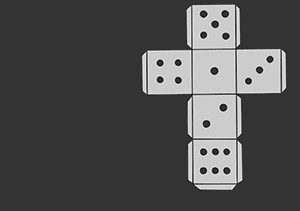In a nutshell, A.R.T (version 4.x) is a program that helps eliminate all ego-driven decision-making. It was created as a way to formalise the process we use in our own sessions.
Our sessions
Traditionally our sessions involve x2 laptops/machines with DAWs (Digital Audio Workstations) that we work on simultaneously.
Our sessions are divided into turns and it is usually left up to the flip of a coin to determine if we; (a) continue working on the same machine and song, or (b) swap over to the other machine and work on the other song.
What happens in a turn
Turns can last from anywhere between 10 – 50 minutes, and we flip cards, or roll dice, or flick through book pages… all in an effort to randomise the turn length.
In each turn, we give ourselves rules or restrictions that govern what we can and can’t do during that turns. For example; we might only be allowed to use a specific type of synth for an entire turn, or not be allowed to write any rhythm for the duration of the turn, etc.
After a turn
At the end of each turn we let chance decide if we change machines or stick to the current machine. We get new a new turn length and draw new rules that dictate our actions for the next turn.
We continue working in this way, turn after turn, on these 2 songs until we are done for the day.
What we get out of it
Not all of what we write is always pleasant, but it is always something beyond what we could’ve imagined doing, and more often than not, the restrictions have led us to discover new ways of working with equipment and software that we wouldn’t have thought to try.
The odd times where we manage to get something cohesive out of a session, it feels like you’ve achieved something important because of all the restrictions that should’ve derailed it.
Try it. And show us what you’ve made using it.

